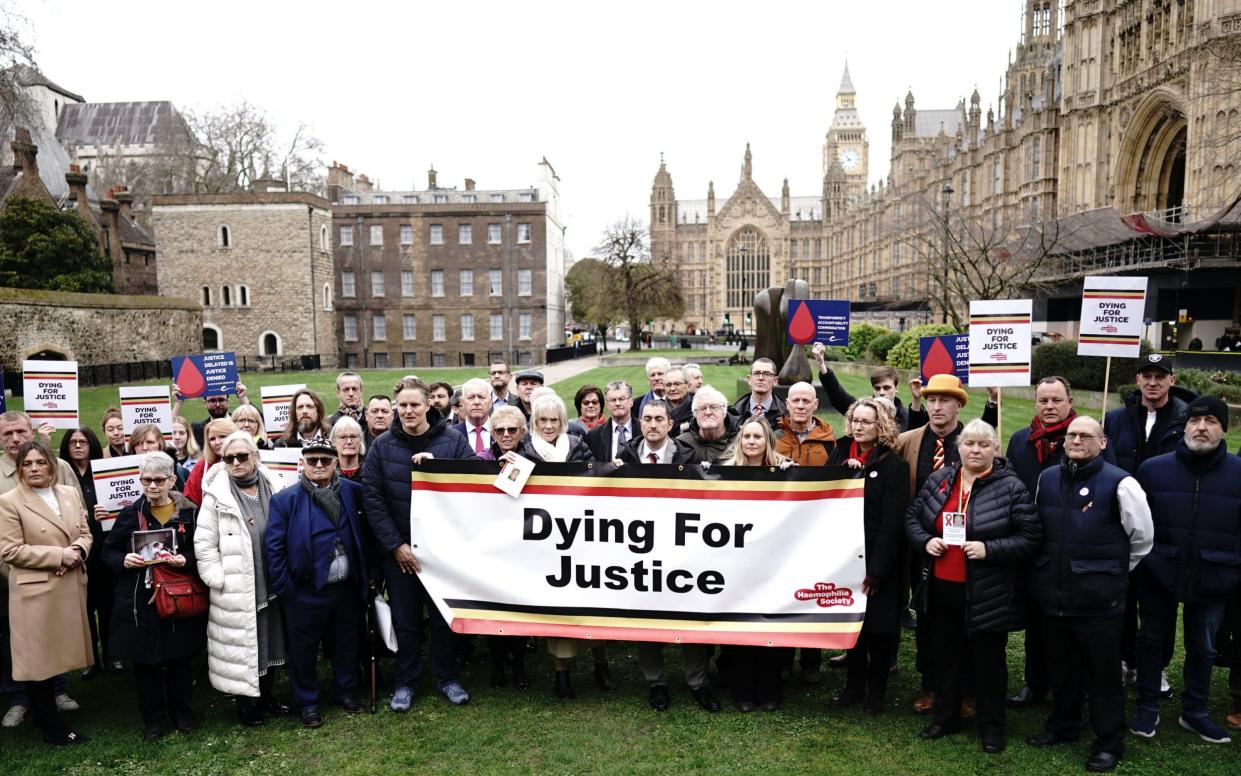Infected blood scandal is ‘worst treatment disaster in history of NHS’, MPs told

The NHS is facing “very serious criminal and ethical issues” over claims children were experimented on with infected blood products, MPs have been told.
Reports over the weekend amplified concerns that unauthorised medical trials were being done on haemophiliacs in the 1970s and 1980s.
Patients with the genetic blood-clotting disorder were sometimes unknowingly switched from safer, NHS-made treatments to cheaper US drugs imported from abroad.
These products, including Factor VIII, were often contaminated with viruses such as hepatitis C and HIV after coming from paid donors that included prisoners, sex workers and drug users.

The infected blood inquiry is to produce its final report in May and some victims are still awaiting compensation.
John Glen, Cabinet Office minister, said reports of children being experimented on by their doctors demonstrates the “unimaginable suffering of all those impacted by this dreadful scandal”.
Labour MP Dame Diana Johnson told the Commons that more than 3,000 people have died as part of the scandal, which she called “the worst treatment disaster in the history of the NHS”.
She added: “These disturbing revelations raise very serious criminal and ethical issues for the NHS and medical profession, possible breaches of the 1947 Nuremberg Code.”
The Nuremberg Code was made in the wake of the Second World War and outlines ethical research principles for human experimentation, including stressing the importance of consent.

Treloar’s school, the Hampshire centre for disabled children, is at the centre of the human experimentation storm with more than 70 haemophiliacs at the institution dying from infected blood products.
It said in a statement at the weekend that the staff, as well as students, “placed their trust in the treatment and advice given out by the NHS clinic”.
Taking issue
However, survivors from the school have responded with fury to the statement and asked for it to be withdrawn.
“We take issue with the idea that effectively they too were a victim. Their apparent disregard of facts and supporting documents leaves us feeling dismissed and outraged,” four former pupils of the school, known as the Treloar’s Boys, said in a statement:
“For the school to continue to deny any responsibility, putting the blame wholly with the NHS, is not only disrespectful to the 75 dead former pupils, but is both preposterous and insulting.”
Mr Glen replied: “I recognise the distress is widespread, it’s felt across individuals and families across the United Kingdom.
“My officials are working with prominent charities, organisations and support groups. I’m reaching out to them to share progress, to reassure the community I’ve heard their concerns, and seek their views in advance of May 20.
“I’m doing that out of deep respect for the suffering that they’ve experienced.”

 Yahoo News
Yahoo News 
